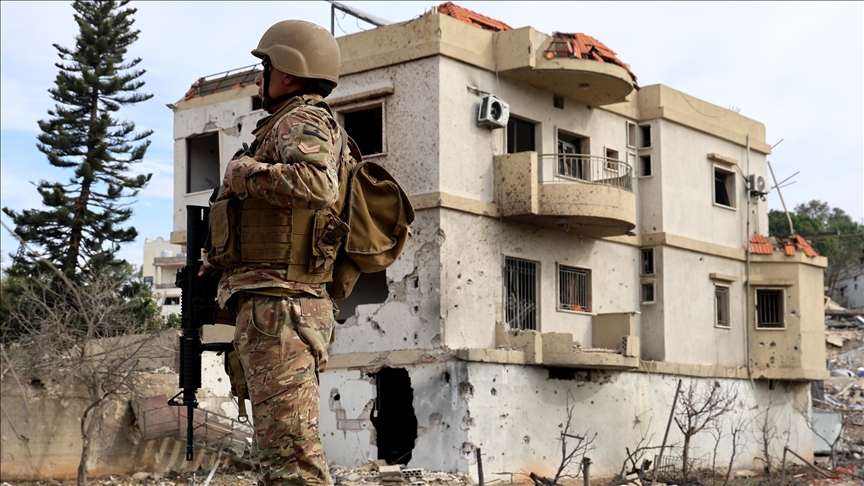Lebanon's premier calls for withdrawal of weapons from southern Litani River
‘Israel must swiftly and fully withdraw from southern Lebanon to restore stability,’ says Najib Mikati
 The Lebanese army begins clearing roads and searching for mines and explosives in the area, on December 12, 2024 in Khiyam, Lebanon.
The Lebanese army begins clearing roads and searching for mines and explosives in the area, on December 12, 2024 in Khiyam, Lebanon.
BEIRUT
Lebanese Prime Minister Najib Mikati on Friday emphasized the need to remove weapons from southern Lebanon, saying the country is embarking on a new phase that should be marked by the return of stability.
During a press conference following his meeting with newly-elected President Joseph Aoun at the presidential palace in Beirut, Mikati revealed that President Aoun had asked him to continue overseeing government affairs until a new administration was formed.
"We discussed the challenges ahead and the presidential speech, which sets the direction for any new government," Mikati said.
He further explained that the situation in the south was a critical topic during their discussion and that “Israel must swiftly and fully withdraw from southern Lebanon to restore stability.”
"We are now at a point where we must see the removal of weapons from the south of the Litani River and the establishment of peace across the whole of Lebanon," he affirmed.
The premier also responded to criticism from Samir Geagea, leader of the Lebanese Forces Party, who had rejected Mikati's nomination for a new government.
Geagea argued that Mikati, as part of the previous team, was not suited for the role of prime minister in the new era Lebanon is entering.
Mikati said he respects all political views, adding, "Everyone has the freedom to express their opinions."
The Lebanese parliament recently elected General Joseph Aoun president after more than two years of political deadlock. The vote took place in the second round of balloting, with Aoun securing 99 votes out of 128.
Aoun was elected at a time when political tensions in the Middle East have been increasing, with Israel continuing its genocidal attack on the Gaza Strip and regularly assaulting neighboring Syria and Lebanon.
Lebanese authorities have reported more than 432 Israeli violations of the cease-fire, including the deaths of 32 people and the injury of 39 others, since the deal came into force on Nov. 27.
The cease-fire agreement aimed to end over 14 months of fighting between the Israeli army and Hezbollah group since the start of the Gaza war in October 2023.
Data from the Lebanese Health Ministry indicates that since Israel’s onslaught against Lebanon began on Oct. 8, 2023, at least 4,063 people have been killed, including women, children, and health workers, while 16,664 others have been injured.
*Writing by Ikram Kouachi in Ankara
Anadolu Agency website contains only a portion of the news stories offered to subscribers in the AA News Broadcasting System (HAS), and in summarized form. Please contact us for subscription options.







